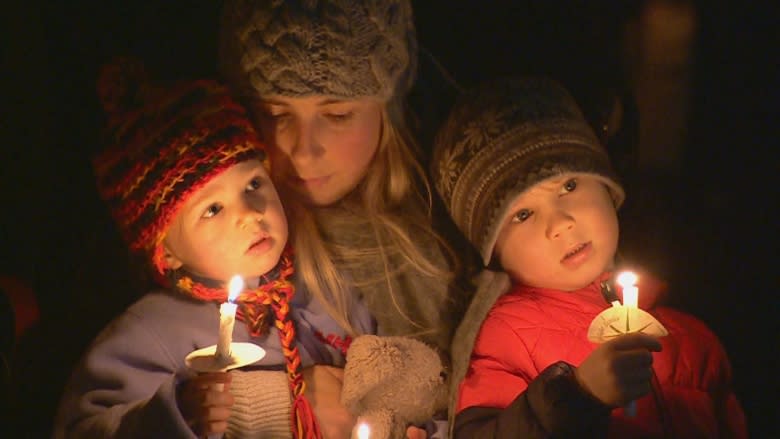'Unbearably painful' emotions can make holidays ripe for violence, criminologists say
In just one week in December, two B.C. communities played host to alleged acts of domestic homicide, and now two fathers stand accused of murdering their children.
On Dec. 19, Jacob Forman's wife Clara and their daughters Karina and Yesenia, were found dead in a Kelowna home. Forman faces second-degree murder charges in all three of those homicides.
Six days later, on Christmas Day, the bodies of Aubrey and Chloe Berry were discovered in their father's Oak Bay apartment. Andrew Berry has been charged with two counts of second-degree murder in connection with his daughters' deaths.
Very little of the circumstances leading up to the two December homicides has been made public, and both fathers have yet to stand trial.
But a pair of criminologists who spoke with CBC News this week offered some insight into the research on past cases where parents were accused of murdering their children, a crime they describe as tragic but not uncommon over the holidays.
Christmas tragedies
Simon Fraser University's Rob Gordon is not familiar with the details of either recent case, and did not comment on them directly.
But he recalls his former career as a police officer, when he learned early on to be cautious of domestic dispute calls during the holidays. He said the Christmas season often brings together a lethal mix of emotions, alcohol and family conflict — made all the more difficult if someone has underlying mental health problems.
"We've created this ritual that separates us from the other animals and one of the consequences that arises is that people get wired into the so-called Christmas spirit," Gordon told CBC News.
"That's nice for most people ... but for a lot of people it becomes unbearably painful emotionally and it's under those circumstances that they make crazy decisions."
Anger and revenge
Alexandra Lysova, also an SFU criminologist, said there are often a few common threads when parents are accused of murdering their children.
"These are the factors of mental health problems and particularly depression. It can also be anger and rage, low self-control," she said.
"In cases when the fathers kill the children, it happens usually in the situation of revenge."
A 2015 Canadian study spanning five decades of these crimes found that revenge and anger or despair are the two most common motives when a father murders his child.
Mothers are more likely to kill their children while they're still newborns, which frequently happens in cases of postpartum depression, Lysova said.
Overall, though, dads are more frequently accused of murdering their kids.
The same Canadian study shows that between 2004 and 2011, 61 per cent of parents accused of killing their children were fathers. That percentage has been climbing steadily since the 1960s, when men made up about half of alleged child killers.
Sometimes, kids can fall victim to "capital punishment of children" when physical discipline gets out of hand, Lysova said. Other times, stressors like money, divorce, and substance abuse can trigger fatal domestic violence.
In general, Lysova said there are several red flags to watch out for, including spousal violence, depression and substance abuse.
"We know about the red flags, we know about the risk factors. We still cannot recognize them sometimes and intervene before it's too late. I guess something is still missing in our responses to these situations," Lysova said.



